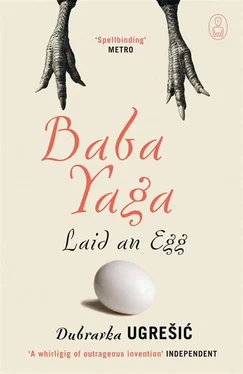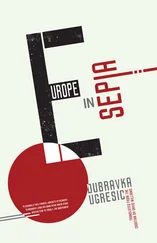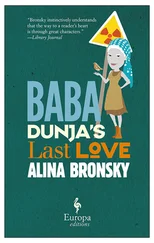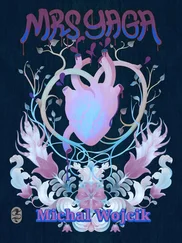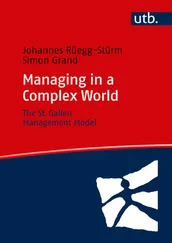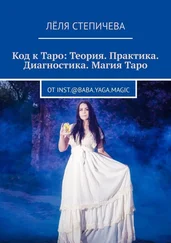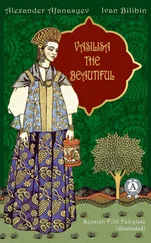‘Blah-blah-blah,’ muttered Kukla and logged off. Passing through the hotel lobby, she caught sight of Beba and an elderly man in the hotel café. Beba waved to her, inviting her to join them. Kukla declined, as she had promised Pupa that she would take her out in her wheelchair for a spin through the town. A little fresh air before dinner would do them both good.
What about us? We carry on. While humans long for fame and glory, the tale just wants to complete the story.
Arnoš Kozeny adored the Grand Hotel. In fact, for him it was not a hotel, but a metaphor for human interaction with other people. The hotel stood in its place, everything else changed: the times, fashion, political régimes, people. The hotel rooms were ears through which a thousand and one human stories had passed. And not one was complete: they were just the exciting sounds of human lives. As he sat in the hotel lobby, Arnoš Kozeny would for a moment close his eyes and listen in. He would go back to his childhood and the moment when he had turned the knob on the radio for the first time and tuned in to the din of the world: noises, tones, sounds… And when he opened his eyes, it seemed to him that he was holding an invisible television remote in his hand. For the most part there was no volume and Arnoš Kozeny would fix his gaze on a scene: two people at the reception desk talking about something, opposite him a tubby man reading a newspaper and sipping cognac, a young couple in the restaurant, whose outlines flashed in the glass, hotel employees scurrying outside to meet some important person, the important person coming into the hotel and going to the desk without looking round. Arnoš would zoom in on a gesture, a movement, a detail, a shadow, someone’s hand, someone’s smile, a ray of sunlight that suddenly revealed the gleam of someone’s false teeth, an ear lobe with an earring, a high heel, the line of a leg, a mouth, the rim of a coffee cup with a lipstick stain. Arnoš Kozeny read the signs, signals and gestures, just as in his youth he had read books, with great attention and great enjoyment. And that reading filled him with his old youthful excitement.
Now that he had retired, he could not imagine life without the hotel. Compared to the great satisfaction he felt when he was there, all other options for spending the modest remains of his lifespan seemed unappealing. At one point, Arnoš Kozeny had bought a small flat in the town. That flat, which had served in his younger days as a secret refuge, now became his permanent address. All the assets he had acquired in the course of his life as a lawyer had gone to his wife and children. Arnoš had married and divorced several times and this bachelor flat was the only thing he had left. But Arnoš Kozeny was not complaining; he no longer needed anything more.
Now he was sitting at a table with three ladies, with whom he had immediately felt at ease. He knew their country, admittedly from a time when it had been in one piece. He had often spent his family summers (not always only with his family) on the Adriatic coast. Enchanting Opatija was one of the significant topoi on the modest geographical map of Arnoš’s otherwise rich amorous biography.
‘Such a shame,’ said Arnoš Kozeny. ‘Do you know that I followed the events in your unhappy country for days on end? What a shame! Hey-ho, what can we do, the country fell apart, but maybe that’s how it had to be. Maybe it was no good…’
‘The country was good, perfectly good, it’s just the people who are shit!’ snapped Pupa.
‘Which just goes to show that we never learn anything from history, as our forebears would have us believe,’ said Arnoš Kozeny in a conciliatory tone.
‘Indeed not!’ said Beba, blushing. (Oh God, she thought, why must I always blurt out stupidities!?)
‘Which might even be good, because otherwise there’d be no life!’ said Arnoš Kozeny brightly.
‘How do you mean?’ asked Kukla.
‘Simple. Many people don’t have the best of experiences with their parents, but they still have children, don’t they?’
‘That’s not a choice, it’s our biological code. We exist only in order to procreate,’ said Pupa, who had surfaced for a moment from her doze.
‘And love? Where is love in all of this?’ asked Beba.
‘A complicated question,’ said Arnoš.
‘In the egg!’ exclaimed Kukla.
‘What egg?’ Beba and Arnoš perked up.
‘You know that Russian fairytale… Ivan falls in love with a girl, but to make her fall in love with him, he has to find out where her love is hidden. And he sets off over seven mountains and seven valleys, and reaches the ocean. There he finds an oak tree, in the oak there is a box, in the box a rabbit, in the rabbit a duck and in the duck an egg. It is in that egg that the girl’s love is hidden. The girl has to eat the egg. And when she eats it, the flame of love for Ivan flares in her heart.’
‘The message of that fairytale is that love does not exist. Because no one has the strength or time to make that journey,’ said Beba.
‘That’s why people have sex,’ said Arnoš.
‘Sex is instant love,’ said Beba.
‘Sex is a quick lottery, a shortened version of the search for the egg,’ said Arnoš.
‘Oh, don’t say that, I’m a child of the sexual revolution…’ said Beba, biting her tongue.
‘Just as well that revolution didn’t catch you as a child,’ said Kukla wickedly.
‘Every revolution devours its children,’ said Arnoš.
‘I am the victim of the sexual revolution,’ Beba corrected herself.
‘You don’t look like a victim to me,’ said Arnoš agreeably.
‘What do you know about victims and sacrifice? You’re a man. Sacrifice is a strictly female accessory,’ said Kukla.
‘Perhaps. But since you’ve mentioned Russian fairytales, here is another Russian example. Pushkin’s poem Ruslan and Lyudmila . You know the story: brave Ruslan sets out in search of the beautiful Lyudmila, who has been snatched by the magician Chernomor. But actually I’ve always been intrigued by a secondary story in the poem,’ said Arnoš Kozeny.
‘Which one?’ asked Beba, although she hadn’t the remotest knowledge of either Pushkin or his poem.
‘On his journey Ruslan comes to a cave,’ Arnoš went on, ‘and in the cave there is a wise old man. The old man tells Ruslan his life story. When he was a young shepherd, he fell in love with the beautiful Naina. But Naina rejected his love. In despair, the shepherd left his homeland, founded a fellowship, put out to sea and fought wars in foreign lands for ten years. And then, tormented by longing, he returned and brought Naina gifts: his bloodstained sword, coral, gold and pearls. But Naina rejected him again. Humiliated, the “parched seeker of love” as Pushkin calls him, decided that he would conquer Naina with spells and so he spent his time alone, learning the secret art of wizardry. And when he finally discovered the last “terrible secret of nature”, there was a flash of lightning, a fearful gale began to rage, the earth shook beneath his feet – and before him appeared an old hunchbacked woman with sunken eyes and grey hair. “The embodiment of senile blight,” says Pushkin. That was Naina,’ said Arnoš, pausing significantly.
‘And what happens next?’ asked Kukla and Beba impatiently.
‘Horrified, the old man bursts into tears and asks whether it is possible that it is her, and where has her beauty vanished, is it really possible that the heavens have changed her so terribly? And he asks how much time has passed since their last meeting. Naina replies:
“Just forty years”
The maiden’s faithful tones responded;
“My age is seventy today.
Such is the way of things,” she quavered,
“In swarms the years have flown away.
My spring, or yours, will not be savoured
Afresh – we both are old and grey.
But friend, is life without allure
Because inconstant youth forsook it?
My hair is white now, to be sure,
Perhaps I am a little crooked,
A trifle slower to entice,
Not quite as lively, quite as nice;
But then (she mouthed) let me confess:
I have become a sorceress!”’ [3] Ruslan and Ludmila , transl. by Jenni Blackwood ( www.sunbirds.com/lacquer/readings/1015 )
Читать дальше
